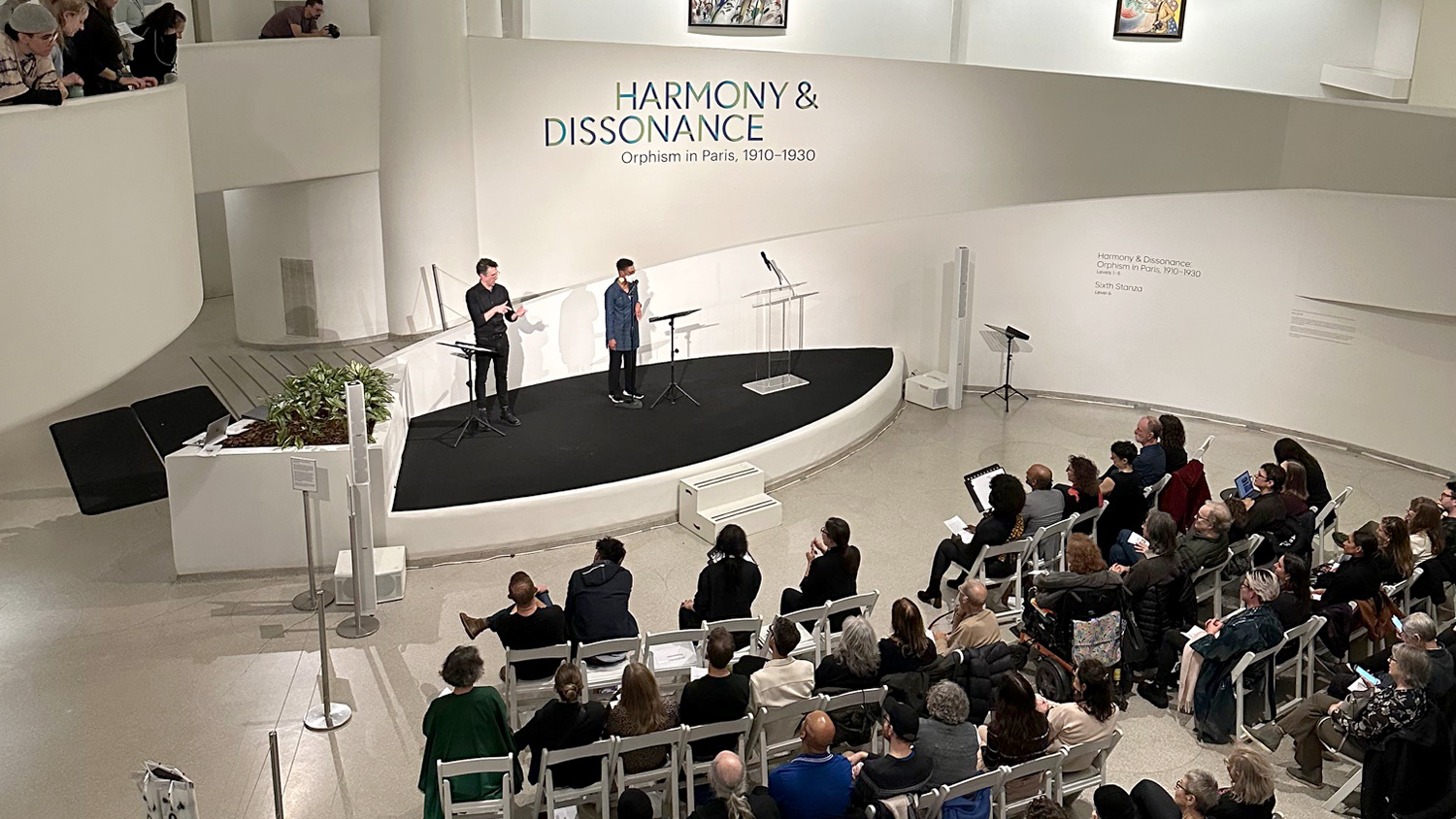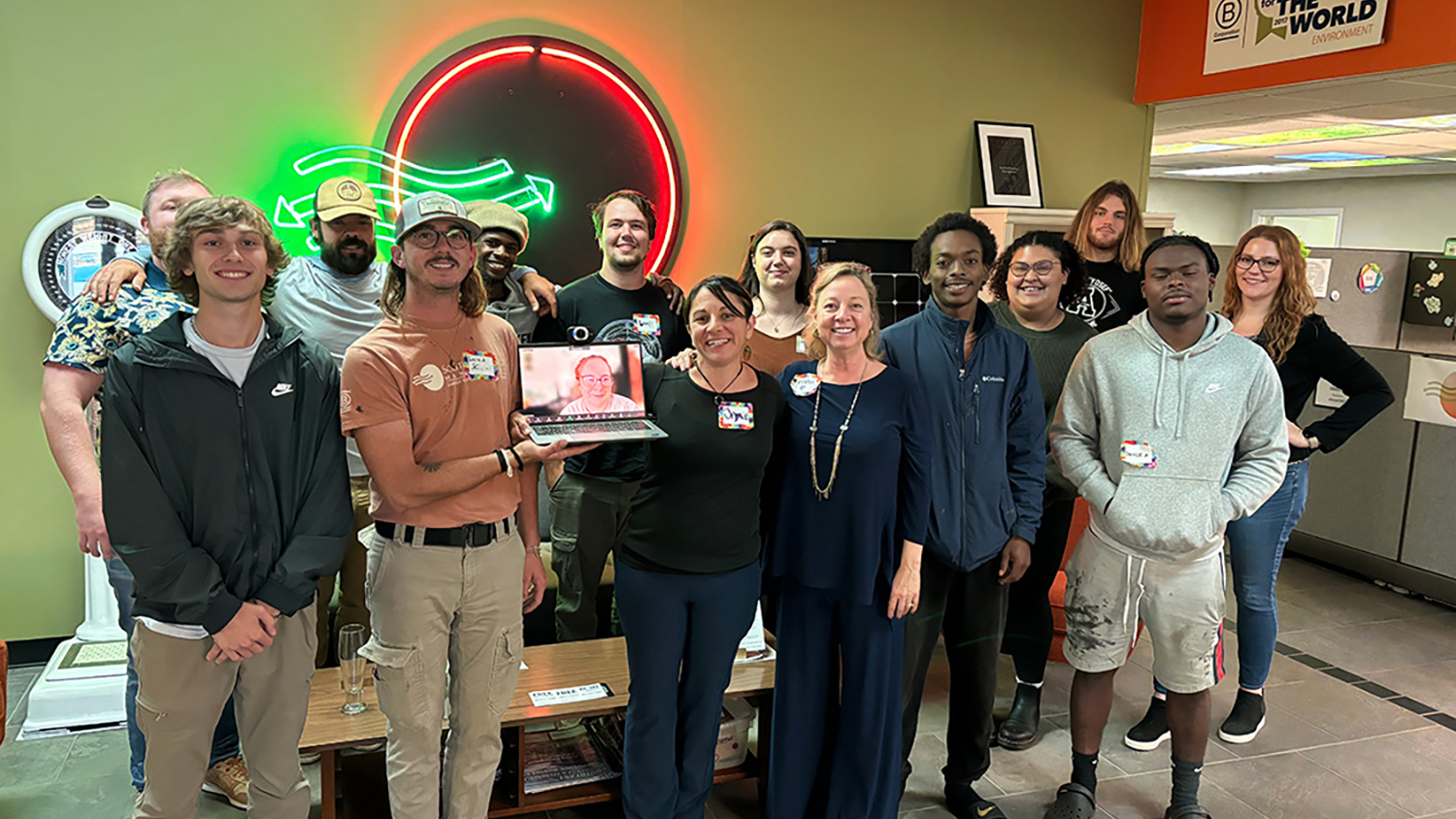Poet’s First Book of Verse Wins Prize

Noel Crook says she grew up in a family where “poets were like gods.”
“It would have seemed almost heretical to say I wanted to be one,” says Crook, a Texas native who graduated from NC State’s MFA creative writing program in 2008.
Fast forward to today, and Crook has achieved what felt like an unattainable dream: She is a poet, and a prize-winning one at that. Her first book, Salt Moon, will be published this spring by Southern Illinois University Press. (See one of Crook’s poems at the end of this article.)
Crook scored the deal after winning the Crab Orchard Review First Book Award, a national prize providing up-and-coming poets with the opportunity to publish their first book.
For Crook, it all feels surreal.
“When John Tribble, the editor at Crab Orchard, called to say my book was chosen, I was in the car driving to pick my daughter up from school,” Crook recalls. “I must have sounded so confused that he told me he’d hang up and email me so that I’d know I wasn’t dreaming. I’d been working on those poems for seven years, so I’m still pinching myself.”
Crook gave her $2,500 prize money to NC State to support the MFA program, telling the university’s development office there wouldn’t be a book without John Balaban, the university’s emeritus poet-in-residence.
“Aside from being a brilliant poet and encouraging teacher, he’s a wicked critic, blunt and sometimes brutal,” she says. “I’ve learned to edit my poems with his raptor’s eye in mind. People talk about writing for the ‘ideal reader,’ and I guess John is mine.”
Balaban says Crook’s strengths as a poet include “honest observation and a careful ear for language. There’s no way anyone could read past the first few poems in Salt Moon without knowing her voice is authentic — a wise observer earning the reader’s trust from the outset, sly and lovely in its speech, and sometimes just awfully funny,” he says.
That’s why associate professor John Morillo encouraged Crook to enter the MFA program in the first place.
In 2004, when Crook was a student in Morillo’s 18th-Century Literature class, she casually asked if he would take a look at some of her poems.
“I didn’t know if these were going to be imitations of 18th-century verse or what, but then I read them and thought, ‘These are really good,’” Morillo says. “It was more modern, and she already had a voice. I remember just being really struck by it.”
When it comes to inspiration, Crook says her poems grow from “what weighs heavy,” such as a news story or photo that catches her attention. One of Crook’s first poems was based on a photograph of a young Iraqi girl killed by friendly fire outside of a bread shop in Baghdad.
“In it, family members are bathing the naked, seemingly uninjured girl according to Islamic tradition,” says Crook.
“She looks as if she’s sleeping and the mother is looking with all of her grief into the camera lens. For me, I guess the child looked like my daughter. I think that what we react to emotionally and psychologically as individuals almost always strikes a universal chord. Which, I suppose, is the mark of poetry. There’s no way to talk about something like this meaningfully, but poems have a way of stripping things down.”
— Diana Smith
the following poem by Noel Crook was originally published in the Journal of the American Medical Association.
Storm
How quickly the heart hunkers down for the worst,
like the day the whole East Coast braces
for a Category 4 and you’re just digging candle stubs
from the kitchen junk drawer when the school nurse
calls to say your daughter’s gone partially blind
in math class, her right arm dead, and by the time
you drive her to the pediatric ER, one stump-numb
hand pressed like a sick child to her breast
you have already practically rented a wheelchair,
seen her face pale against hospital sheets,
whirr of the respirator, wiped drool from her cheek,
the words no and please wheeling like seabirds
against shredded clouds of your brain —
old tuneless song of the lost sailor’s mother,
unscathed and unscathed and unscathed.
And in the exam room, under noxious fluorescents,
you number her bones while the nurses enter
and leave and you think of lifeboats,
the huge clock above her blind as a moon,
till the doctor arrives to tell you
how the CAT scan was clear, MRI clean, something
unfathomable: potassium levels, her not eating lunch.
Then you breathe what feels like the first clean breath
of the blue-lipped rescued, just breathe and breathe
the entire way home, don’t even think of the storm
still lolling over the Atlantic, leisurely dragging
its malignant heart toward shore, the candles left strewn
on the kitchen floor, how later you’ll watch her
sleep in their frail circle of light.
This article first appeared in the college’s Accolades 2015 magazine.


